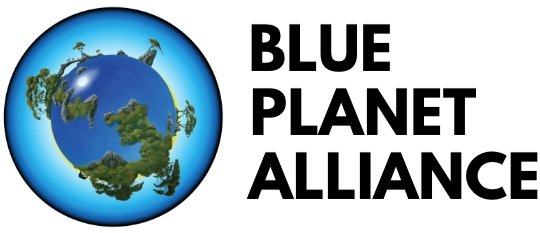Let There Be Renewable Light!
BPA makes an invited presentation to high-level legislators from the Caribbean
Port of Spain, Trinidad and Tobago — Every island should transition to 100% renewable energy. There are endless efficacious reasons to do so, but the most engrossing examples are the “Three Es” of Renewable Energy:
Economic
Energy Independence
Existential
This is what Blue Planet Alliance (BPA) conveyed to the legislative leaders of a dozen Caribbean countries and territories in a special program, “Accelerating Parliamentary Action on Climate Change for a Resilient and Sustainable Region,” produced jointly by the Parliament of Trinidad and Tobago and the Inter-Parliamentary Union (IPU) in May.
BPA Special Representative Lance Gould made the presentation, which took place at the Parliament of the Republic of Trinidad and Tobago in the capital, Port of Spain, with 12 countries and territories in attendance.
BPA was invited by the IPU, with whom we have long collaborated on matters of climate legislation and policy.
The “Three Es” provide a win-win-win formula, which BPA helped articulate after leading Hawaii to a legislative mandate to transition to 100% renewable energy by 2045:
Win #1: Economically
Hawaii, like many other island jurisdictions, was spending an exorbitant amount on fossil fuels: $6 billion a year. That was $5 billion on oil and another $1 billion on coal. Every year. By switching to renewable energy — wind, solar, geothermal, biomass, hydro — the state will save billions of dollars.
And, whatever money it spends will further stay in the Hawaiian economy.
The utilities were the biggest obstacle to the achievement in Hawaii — as they continue to be elsewhere. But once the proposed bill was signed into law and the utilities were forced to do further research, they realized they would make more money with renewables than with fossil fuels. Now In Hawaii, the utilities are one of the biggest backers of renewables.
Win #2: Energy Independence
By utilizing renewable energy, rather than imported fossil fuels, islands can be energy Independent.
This is more important than it sounds:
Energy-independent jurisdictions do not have to fear bad actors or rogue states, who may charge exorbitant prices for their fossil fuel commodities — or refuse to sell them at all.
Nor do energy-independent jurisdictions have to worry about external factors impeding the delivery of oil shipments — factors like extreme weather, a conflict or war, a pandemic that disrupts supply chains, or a poly-crisis that involves all of the above.
Win #3: Existentially
Under the old, dirty-energy system, Hawaii and other islands were actively contributing to their own potential demise. Using fossil fuels was an incremental contributor to a warming planet, which means melting ice caps and rising sea levels and more frequent extreme weather like Category 5 cyclones or hurricanes, which threaten islands.
By using renewable energy, islands demonstrate that they are not willing to endanger their own existence any further.
Attendees included the highest level of government from Caribbean island countries Barbados (Speaker of the House), Cuba (Member of Parliament), Dominica (Speaker of the House), Grenada (Senator), Jamaica (Member of Parliament), St. Kitts and Nevis (Minister), St. Lucia (President of the Senate), and Trinidad and Tobago (President of the Senate and Speaker of the House); Caribbean island territories Cayman Islands (Member of Parliament) and Turks and Caicos (Member of Parliament); and culturally Caribbean countries in South America Guyana (Members of Parliament) and Suriname (Members of Parliament).
A Biblical Theme
During a spirited Q&A session, a Trinidadian representative asked why their country should transition to renewable energy when oil is such an important part of their economy.
“Certainly the third ‘E’ of the Three Es is applicable here,” noted Gould. “The flooding to which [the very flat part of] central Trinidad is subject because of the increase in extreme weather is indicative of the fragility of the land here. Additionally, Trinidad’s oil reserves are greatly diminished from their apex and I don’t believe Trinidad refines its oil, so it sends it out to another territory on which it relies for part of the process, so it is not completely energy independent — and that economic lifeline won’t last forever.” Another guest speaker from UNDP (UN Development Programme) agreed, and played upon that theme of limited resources with a biblical reference, noting that “after seven years of feast there would follow seven years of famine.” Gould added, “Let there be renewable light!”
The objectives of the conference were for participants to gain a deeper understanding of climate change and its impacts, learn about effective mitigation and adaptation strategies, and bolster national and regional efforts to take meaningful action toward addressing climate change.




